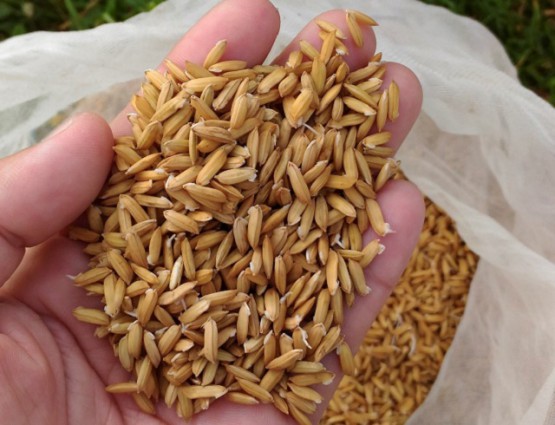Philippine Rice Research Institute (PhilRice), the country’s lead agency for rice research for development, pushes for the use of high-quality inbred seeds and its associated technologies to help farmers become competitive and survive the influx of cheaper rice from the international market.
According to PhilRice experts, competitiveness means increasing farmers’ yield by at least 5 tons per hectare for inbred seeds and reducing their production cost by 30%.
Signed on Feb. 14 by President Rodrigo Duterte, the Rice Trade Liberalization Law mandates PhilRice to develop, propagate, and promote inbred rice seeds to rice farmers and organize them into seed growers associations to be engaged in seed production and trade.
Currently, only 45% of local farmers use high-quality seeds. Most farmers usually use 80-120kg of seeds per hectare.
To make them more competitive, experts advise farmers to use high-quality seeds of a recommended variety as this can increase their yield by 10% or more, based on studies. Moreover, farmers are also encouraged to reduce their seeding rate to save on cost. Instead of the usual 80-120kg/ ha, farmers are advised to use 40kg for transplanted rice and 60kg for direct-seeded rice.
“High-quality seeds are free from visible insect pests and diseases, full and uniform in size, relatively pure, viable, and have high germination rate (85% above) when planted by farmers,” Susan Brena, a seed technology expert, said.
According to Brena, farmers may also produce their own high-quality inbred seeds. That way, farmers can purify their own harvest and use them as planting material. This will also help them save cost.
Farmers are also advised to use recommended inbred varieties that are appropriate to the environment and resistant to pests and diseases in the locality. Farmers may also plant varieties that showed relatively stable and high yield in adaptability trials and have high demand in the local market.
Under the tariffication regime, PhilRice will train farmers and seed growers to produce high-quality inbred seeds. With an allotted P3B annual budget for six years to accomplish its mandate, it will also partner with agencies to propagate and promote the technology to farmers.





